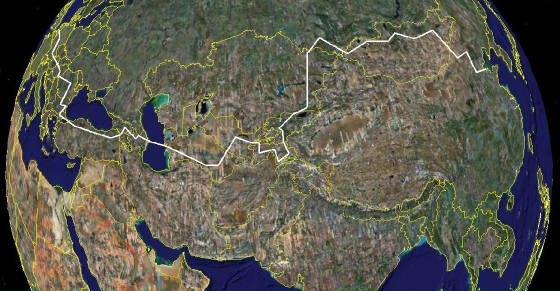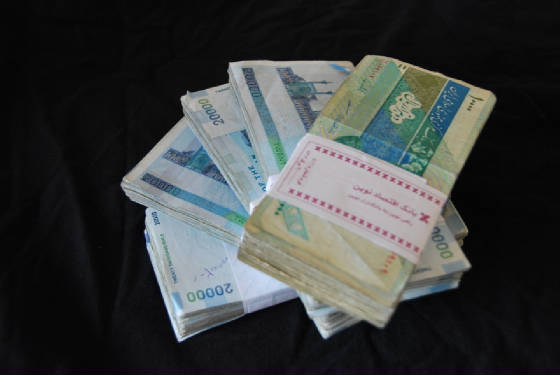|
| Click on image for China |

|
| Click on image for China |
MONEY
MERCHANTS OF ASIA Changing Money in a Bazaar By: Kambiz Taleghani 20080801 In most Asian countries, there still exist “money merchants” in the bazaars. They
usually offer better exchange rates than the banks and seem to be open most of the time. No "banking hours"
for these folks. You
can sometimes find their "foot soldiers" at border crossings. They walk to your car's
window and offer currency exchange. We used their "window" service once at a Turkish border. Convenient,
but slightly higher rates than those found inside the bazaars or banks.  We used one of these merchants in a bazaar in Iran, and in Azerbaijan, to change some Dollars and Euros into local currency.
Better rates than the local banks offered there. A lot more convenient, especially at countries (e.g Azerbaijan) whose
banks keep you waiting in line for up to 3 hours and then you must complete long forms and go back-and-forth between various
desks and windows before you actually exchange your foreign travellers cheques into local currency. We used one of these merchants in a bazaar in Iran, and in Azerbaijan, to change some Dollars and Euros into local currency.
Better rates than the local banks offered there. A lot more convenient, especially at countries (e.g Azerbaijan) whose
banks keep you waiting in line for up to 3 hours and then you must complete long forms and go back-and-forth between various
desks and windows before you actually exchange your foreign travellers cheques into local currency.
The money merchants' "merchandise"
is money! (Do I have enough "m"s here?!) Mostly Cash. Just about every currency you can
imagine. They also handle money transfer, anywhere in the world in almost any currency!
Read on… They
are engaged in the ancient tradition of sending money from one place to another. In our case, say,
if we were worried about losing our money, and did not want to carry a lot of cash with us during the trip. Say,
we wanted to receive 500 Euros in Dushanbe, Tajikistan. We would visit a money merchant
in the bazaar here, say Istanbul or Astara. He would accept whatever currency or combination
of currencies we chose to pay, then include a service charge for his fee. Then on the appointed
hour of a date and place of our choosing, say our hotel room in Tajikistan, someone would come to the hotel, give us the money.
Then, if practical, the messenger would pass a phone to you, and you would confirm that you have received
the money, and/or sign a receipt. That is it. I tell you, the service is tough
to beat. Tough competition for modern banks and Western Union! By the way, for over
a thousand years, that is one of the methods the merchants of the Silk Road have received their money at the destination
and protected themselves from ever-present road bandits. This invisible network still operates and can
still cross political, and national borders as they have for thousands of years. Incredible.
Some merchants now accept credit cards and can wire transfer to bank accounts, and vise versa.
Of course with the ease and spread of ATM and online banking, I wonder if their time may be limited. It
is a remarkable financial market which has been lubricating the wheels of commerce before it was known as “international
finance”, for, literally, over a thousand years. On the Silk Road, the story goes, there was a Chinese merchant who sent some of his sons to towns along
the Silk Road. Let us say Kashghar (today in China), Bukhara (today in Uzbekistan), Mashhad (today in Iran),
and Aleppo (today in Syria). The father was in Xi’an the old Capital of China and
the termination point of the Silk Road. Now if Marco Polo, his father, and uncle were on their way to China
(or anywhere in between) to trade and make purchases, they would give certain amount of money to this merchant's
son, say in Aleppo (near Mediteranian). Then 2 or 3 years later when they arrived in Xi’an,
they would simply go to the Chinese gentlemen and receive their gold from him! The money merchant
had his own network for funds transfer, as well as due-to/due-from credits and debits. When one of
the sons or grandchildren wanted to get married, the father (and later, his resident sons and descendants) would send a bride
from an entrusted and known family in Xi’an. This continued for generations.
A similar network exists to this day. It still transcends the ever-changing political boundaries and financial
landscape of Asia. My guess is that today
most of these services are used by “small” local merchants that work on a regional basis. For
example if an Uzbek or Afghan merchant has to go to Mashhad buy his merchandise. Or,
if an Azeri merchant goes to Turkmenistan to buy carpet. I interned briefly for the World Bank, and have a cousin who works with financial
derivatives for a large Bank in London. I tell, you, we can all learn a thing or two from
the money merchants of the bazaars. I tease my cousin and some friends in financial institutions,
that the money merchants were calculating the risk of forward contracts and creating derivative products in the financial
markets by the hour, with their abacus and in their heads long before the advent of all these modern tools, techniques, and
computers. I wonder if you found this as interesting as I, when I learned AND experienced the actual
process. It works to this day, in 21st century. As you can imagine, in
their business, reputation, longevity, personal trust, and references play an important role.
________________________________________________________________________________ The following countries were on our driving itinerary,
until we had to cancel and drive back to Turkey, due to Chinese closing their borders to self-driving tourists. Click here for the story of Aborted Drive.
|